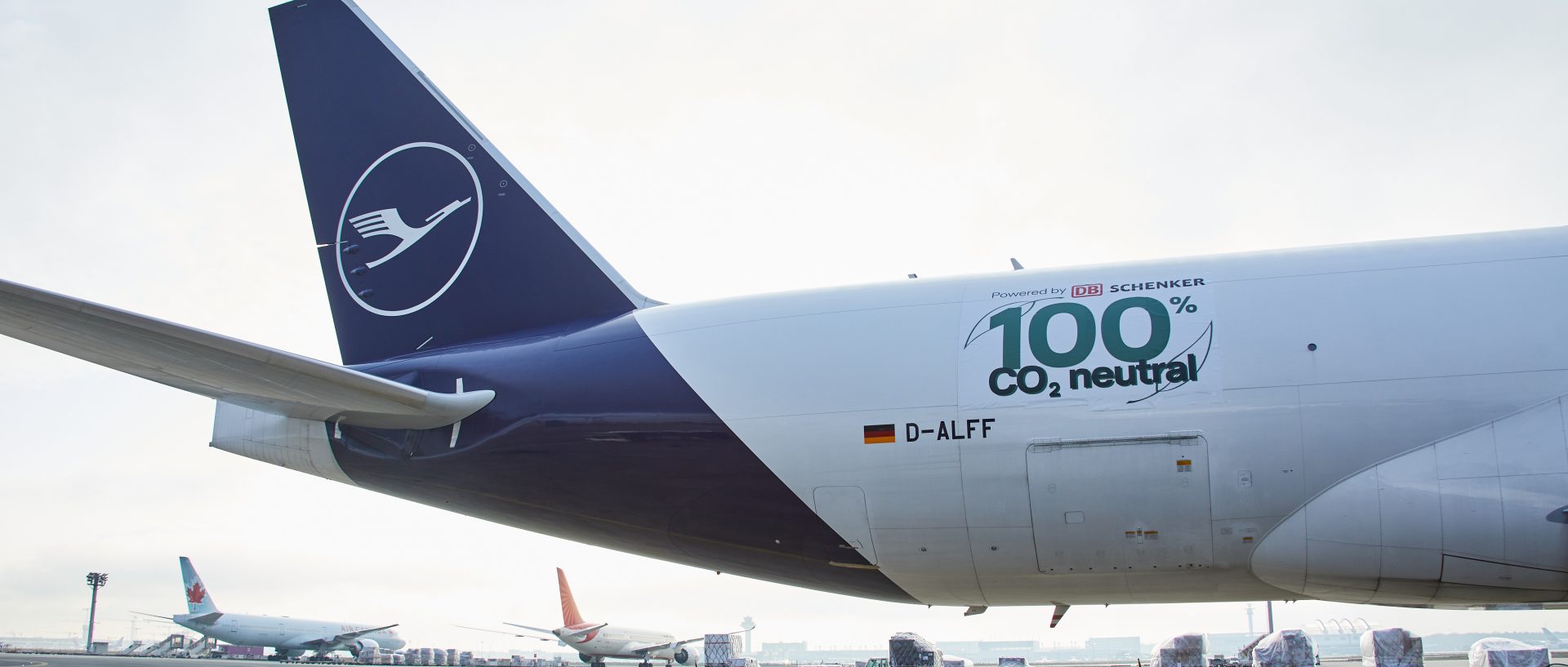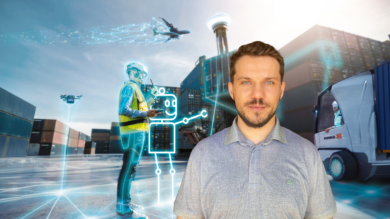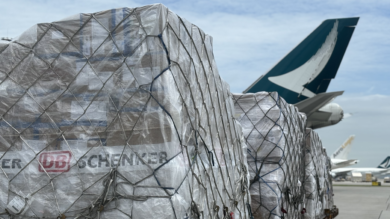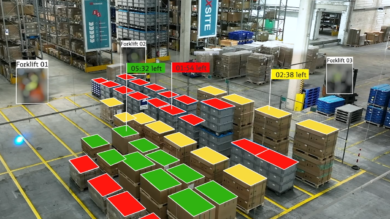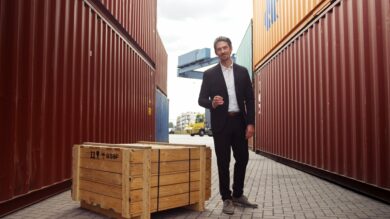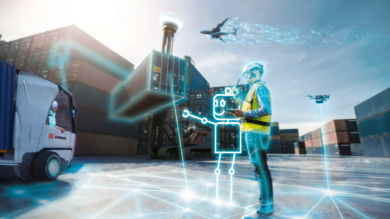Shanghai, China, 1:55 a.m. on November 30, 2020. This is a historic moment – The first commercial carbon neutral cargo flight in history is arriving at Shanghai Pudong International Airport, having completed its nine-hour journey from Frankfurt, Germany. This milestone in Air Freight history was realized by DB Schenker in cooperation with Lufthansa Cargo.
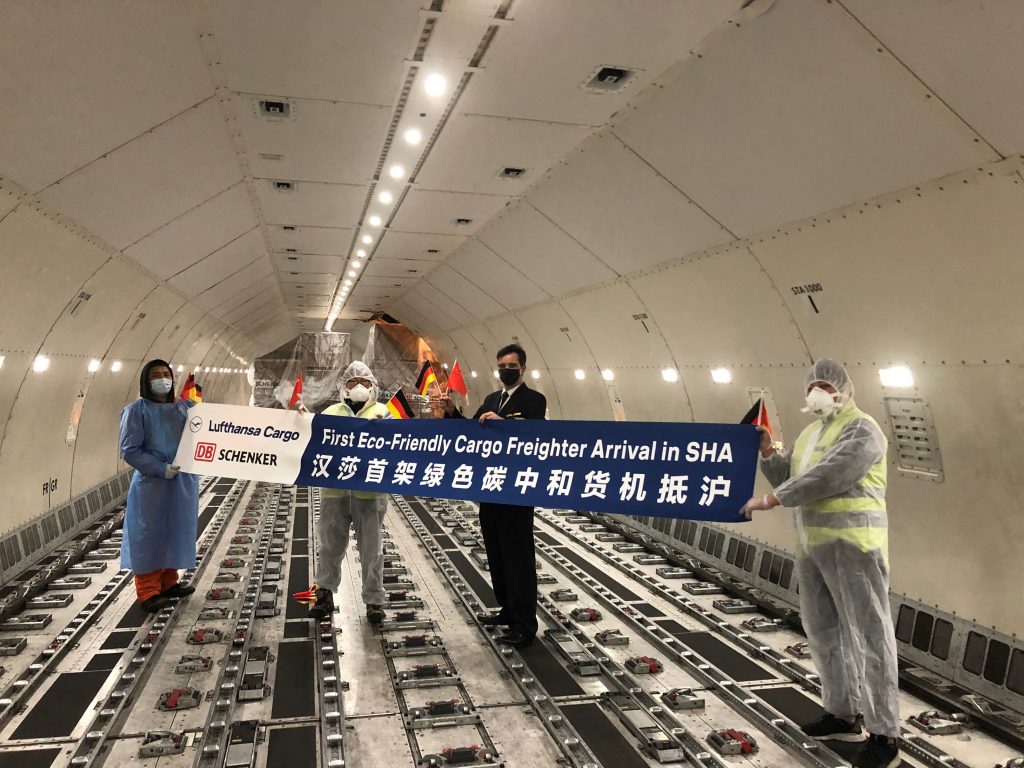
Carbon neutral cargo flight
DB Schenker and Lufthansa took the next step in becoming more sustainable, marking a breakthrough for environmental protection within the air freight industry.
The Boeing 777F used for the occassion was partially fueled by Sustainable Aviation Fuel (SAF), which refers to to sustainable, synthetic kerosene. This fuel is currently produced mainly from biomass, for example recycled vegetables or cooking oils. With the use of SAF, the carbon dioxide emissions from conventional kerosene are completely avoided. To offset the small amount of carbon dioxide released during combustion in the engine, DB Schenker and Lufthansa are additionally engaging in a reforestation project. As a result, the flight was completely carbon neutral.
Alternative methods for carbon neutrality
Sustainability is a pressing issue and now more than ever, the logistics industry is looking for solutions to reduce its carbon footprint. With experts forecasting a fast growth in freight transport by 2050, it is important to take action. A study by the European Parliament predicts that if the industry continues on the current trajectory without intervention, aviation will be responsible for 22 percent of all global carbon emissions by 2050.
Some companies are already using carbon offsetting to achieve carbon neutrality. This is the practice of counteracting carbon emissions by investing in environmental projects – for example tree planting programs – thereby balancing the company’s carbon footprint. As mentioned above, DB Schenker and Lufthansa Cargo engaged in a reforestation project to compensate for the greenhouse gases resulting from the production and transportation of the biomass, alongside the processing, transport and combustion of SAF in the engine.
What could the future look like?
Starting from April 21, DB Schenker will offer its customers carbon neutral air freight as a regular product together with Lufthansa Cargo. These companies are the first to use a direct method of eliminating carbon emissions.
In other industries, such as land transport, e-mobility is becoming increasingly important in the elimination of carbon dioxide emissions. Although aircraft have a long way to go, Rolls-Royce and Siemens have been working on a hybrid electric propulsion with plans to develop an all-electric demonstrator aircraft. Who knows – maybe one day, e-aircraft will operate in the logistics industry.
Published: December 2020


